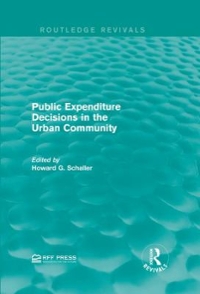Question
1. Mr. and Mrs. Ward typically vote oppositely in elections and so their votes cancel each other out. They each gain 14 units of utility
1. Mr. and Mrs. Ward typically vote oppositely in elections and so their votes "cancel each other out." They each gain 14 units of utility from a vote for their positions (and lose 14 units of utility from a vote against their positions). However, the bother of actually voting costs each 7 units of utility. The following matrix summarizes the strategies for both Mr. Ward and Mrs. Ward.
| Mrs. Ward | |||
| Vote | Don't Vote | ||
| Mr. Ward | Vote | Mr. Ward: -7,Mrs. Ward: -7 | Mr. Ward: 7,Mrs. Ward: -14 |
| Don't Vote | Mr. Ward: -14,Mrs. Ward: 7 | Mr. Ward: 0,Mrs. Ward: 0 |
The Nash equilibrium for this game is for Mr. Ward to____________ and for Mrs. Ward to_________ . Under this outcome,
A. Vote
B. Not Vote
2. A. Vote
B. Not Vote
Mr. Ward receives a payoff of________________ units of utility and Mrs. Ward receives a payoff of_______________
units of utility.
Suppose Mr. and Mrs. Ward agreed not to vote in tomorrow's election.
True or False: This agreement would increase utility for each spouse, compared to the Nash equilibrium from the previous part of the question.
True
False
This agreement not to vote a Nash equilibrium.
A. Is
B. Is Not
Step by Step Solution
There are 3 Steps involved in it
Step: 1

Get Instant Access to Expert-Tailored Solutions
See step-by-step solutions with expert insights and AI powered tools for academic success
Step: 2

Step: 3

Ace Your Homework with AI
Get the answers you need in no time with our AI-driven, step-by-step assistance
Get Started


